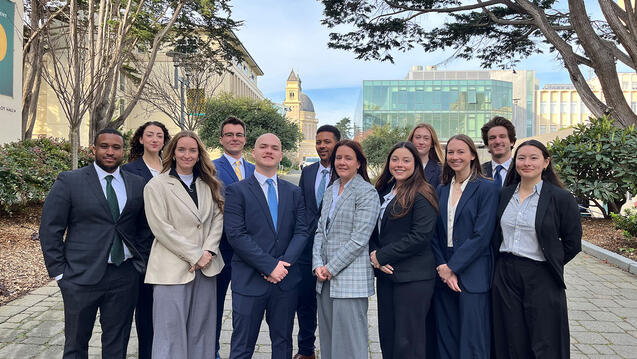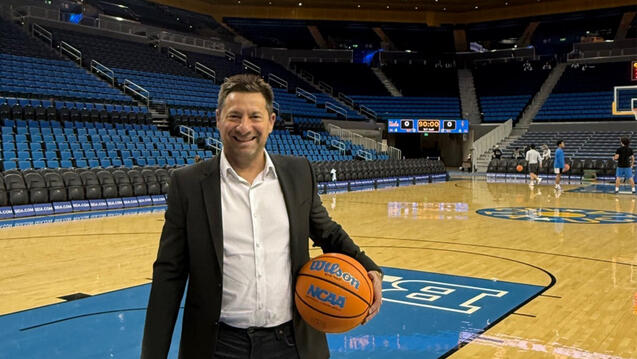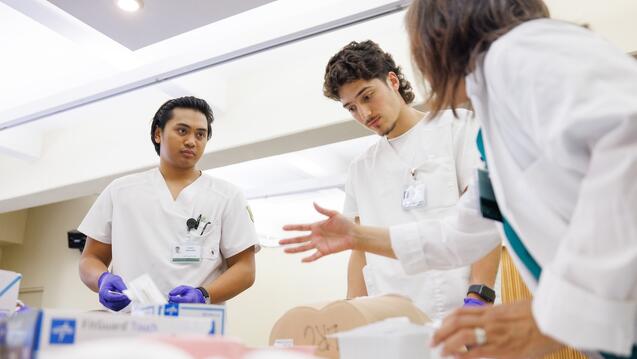How Trauma-Informed Care Initiated a Path to Healing
In the fall of 2020, USF nursing students first met J.P. on his journey of a thousand steps.
Homeless and in pain, J.P. had shown up to Ritter Center about two years before, looking for shelter and seeking relief for his leg, which he had fractured many years ago and which was frequently infected.
With Opportunity Village Marin “room and board” in place, and a public health nurse intervention led to admission into the housing voucher-focused case management program and an orthopedic work-up with a recommendation for an above-the-knee amputation of his leg. J.P. refused, horrified.
Over the next several months, J.P. endured four episodes of sepsis. He began seeking “street drugs” to supplement his limited prescription pain management regimen.
In January of 2021, a team of USF Master of Science in Nursing students began their public health practicums with the Marin Tele-Health Virtual Clinic. They met J.P. in his home. They listened to him and learned his story. Under the direction of the program’s public health nurse preceptor, the interns used skill and compassion to win J.P.’s agreement to accept the surgery he had refused two years earlier. Using a step-by-step approach, they introduced JP to other septuagenarian amputees who demonstrated life after amputation. This connection gently coaxed him back to the UCSF surgeon, and ultimately, a path to healing.
The day after his operation, J.P. was up on crutches. He could not believe that he was pain-free. He looked forward to heading home with home health care to support his convalescence. J.P.’s home was outfitted with medical equipment to support his mobility and self-care. Daily contact with his peer support club energized and empowered him.
“Yep, I lost my leg, but I gained a life,” he said.
Housing, together with wrap-around, interdisciplinary, compassionate care within the scope of public health nursing, changed J.P.’s world from here.


